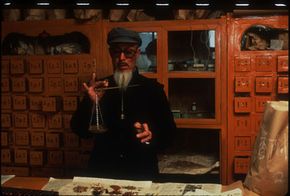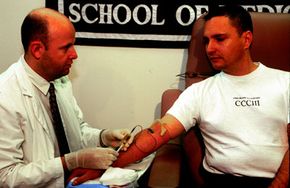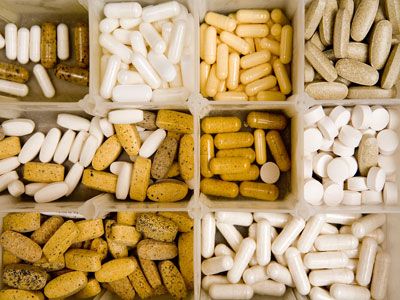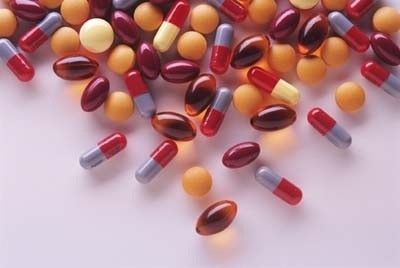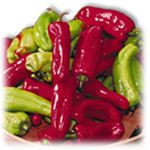Around 2800 B.C., Chinese healers added a new medicinal herb to their repertoires. This herb, a short, evergreen shrub, was dubbed Ma Huang ("bitter yellow"), after the plant's color and horrible taste [source: Berkley]. When brewed into a tea, it's a powerhouse against respiratory problems like colds. Ma Huang became a worthy tool in Traditional Chinese Medicine (TCM).
In 1887, a Japanese chemist isolated the active ingredient in the plant, an alkaloid he called ephedrine or ephedra [source: Ebadi]. In short order, ephedrine appeared in medicines around the world. It stimulates the sympathetic nervous system (which is responsible for the fight-or-flight response), in turn dilating the bronchial tubes. Ephedra became particularly useful for alleviating symptoms in asthma sufferers.
Advertisement
During the 1990s, TCM and other types of alternative medicines (essentially any type of medicine outside modern Western medicine) experienced a surge in popularity. Ma Huang had millennia of proven effectiveness behind it, and it was part of this newly discovered spectrum. In the image-conscious United States, however, the stimulant was largely touted for its ability to stimulate weight loss and enhance energy in products with names like Metabolift and Herbal Ecstasy [source: Jacobs and Hirsch]. Soon after, reports of deaths linked to ephedra surfaced.
Between 1993 and 1997, at least 34 deaths and 800 medical cases were directly linked to use of ephedra [source: Jacobs and Hirsch]. By 2003, 69 percent of all reported health problems from herbal remedy use were linked to ephedra. As many as 16,000 reports of health problems, including stroke and psychosis, were submitted to the federal government from the 1990s to 2003 [source: University of Washington].
What happened? The Chinese had successfully employed Ma Huang for 5,000 years; in the United States, it was proving fatal. Perhaps the best explanation is a lack of respect and understanding of herbs in the West: What Westerners consider herbs, the Chinese consider drugs. And unlike what Americans consider drugs, herbs aren't overseen by the U.S. Food and Drug Administration (FDA) -- they're freely marketed and sold. On the next page, read about potential problems from this lack of regulation.
Advertisement
